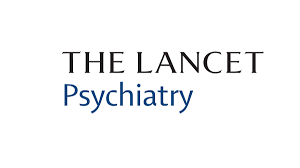One of the most remarkable impacts of COVID-19 on psychiatry is that it has accelerated the digital progression in mental health service delivery. Digital psychiatry has been discussed for some time, particularly in high-income settings.1, 2 But COVID-19 has precipitated the adoption of digital tools in psychiatry throughout much of the world, including in low-income and middle-income countries (LMICs), with teleconferencing becoming a norm and new digital solutions emerging. From early 2020 onwards, lockdowns across the globe meant that outpatient mental health services could no longer continue as usual; however, because of the ubiquity of digital technologies, it was a relatively simple step to shift from in-person visits to teleconferencing and video consultations.3 This shift not only decreased the risk of SARS-CoV-2 transmission, but also allowed continued access to services.
While the rapid acceleration of video-based telepsychiatry illustrates the capacity of health systems and providers to adopt different technologies during a global crisis, this transition has also highlighted existing inequities in access. For patients without adequate digital devices or living in regions with poor network connectivity, the transition to video-based telepsychiatry might have exacerbated the treatment gap. In high-income countries, reliance on technology during the pandemic renewed awareness of suboptimal access to care among marginalised groups, emphasising the need to promote digital literacy and to improve technological infrastructure.4 Similar recognition of digital health equity is essential in LMICs, where the adoption of digital interventions could increase access to care for some, while introducing barriers to care for others.
The shift to video-based telepsychiatry during COVID-19 raises additional concerns. Missing important physical and mental signs and symptoms during teleconsultations is a worry; although advances in videoconferencing might partly address this, such quality might be limited in LMICs because of low bandwidth and high data costs. Ensuring interoperability of digital platforms, and harmonisation of technical standards and governance mechanisms that govern online communications, ranging from text messaging to videoconferencing, also requires careful attention.5 Concerns about the safety and quality of many digital mental health applications highlight the need for greater regulation in digital mental health6 and robust digital privacy laws, particularly in LMICs. The shift to video-based telepsychiatry has largely been a pragmatic response to the pandemic, enabled in many countries through new legislation and policies that mobilised funding necessary to implement infrastructure and ensure reimbursement for remotely delivered mental health services. Evaluation of this transition has mainly been anecdotal;7 online care cannot be assumed to be merely interchangeable with conventional practice, and there is a pressing need for ongoing rigorous evaluation.
Video-based telepsychiatry represents only one com-ponent of what digital psychiatry has to offer; these platforms can be enhanced by including the administration of self-rated symptom scales, automated appointment reminders, and electronic prescription of medication.8 More advanced opportunities include leveraging technology for digital phenotyping (eg, the use of biosensors paired with smartphones), algorithm-based support, and machine learning for optimisation of treatment.9 It is noteworthy that some digital platforms have integrated expert clinician interventions, recovery and vocational support, and peer-to-peer social networking.10 Video-based telepsychiatry will face challenges to scale-up because of its reliance on highly skilled mental health professionals. Teleconferencing platforms might be able to facilitate more scalable models of care, for example, enabling specialists to promote remote supervision to non-specialist health-care workers. The mechanisms necessary to finance and sustain these novel approaches need to be considered.

What will happen in psychiatry after COVID-19? Although face-to-face mental health services are crucially important, we anticipate that health-care facilities that have established digital platforms ranging from text messaging to videoconferencing will continue to employ these, given favourable perceptions among both clinicians and patients. We would encourage ongoing emphasis on equitable access, appropriate regulation and reimbursement, and quality assurance. Quality assurance could be supported by building new capacities, particularly the incorporation of measurement-based care and learning models for implementation that continuously assess and improve outcomes.1 COVID-19 has accelerated the digital progression in mental health; collaborative efforts from health care and academic institutions, policy makers and funding agencies, clinicians, technology developers, and patient advocates are needed to fully leverage this opportunity to achieve sustained delivery of quality mental health care.
DJS reports consulting fees from Discovery, Johnson & Johnson, Lundbeck, Sanofi, and Vistagen, and honoraria from Servier and Takeda. All other authors declare no competing interests.
Article From: The Lancet Psychiatry
Author: Dan J Stein, John A Naslund, Jason Bantjes

